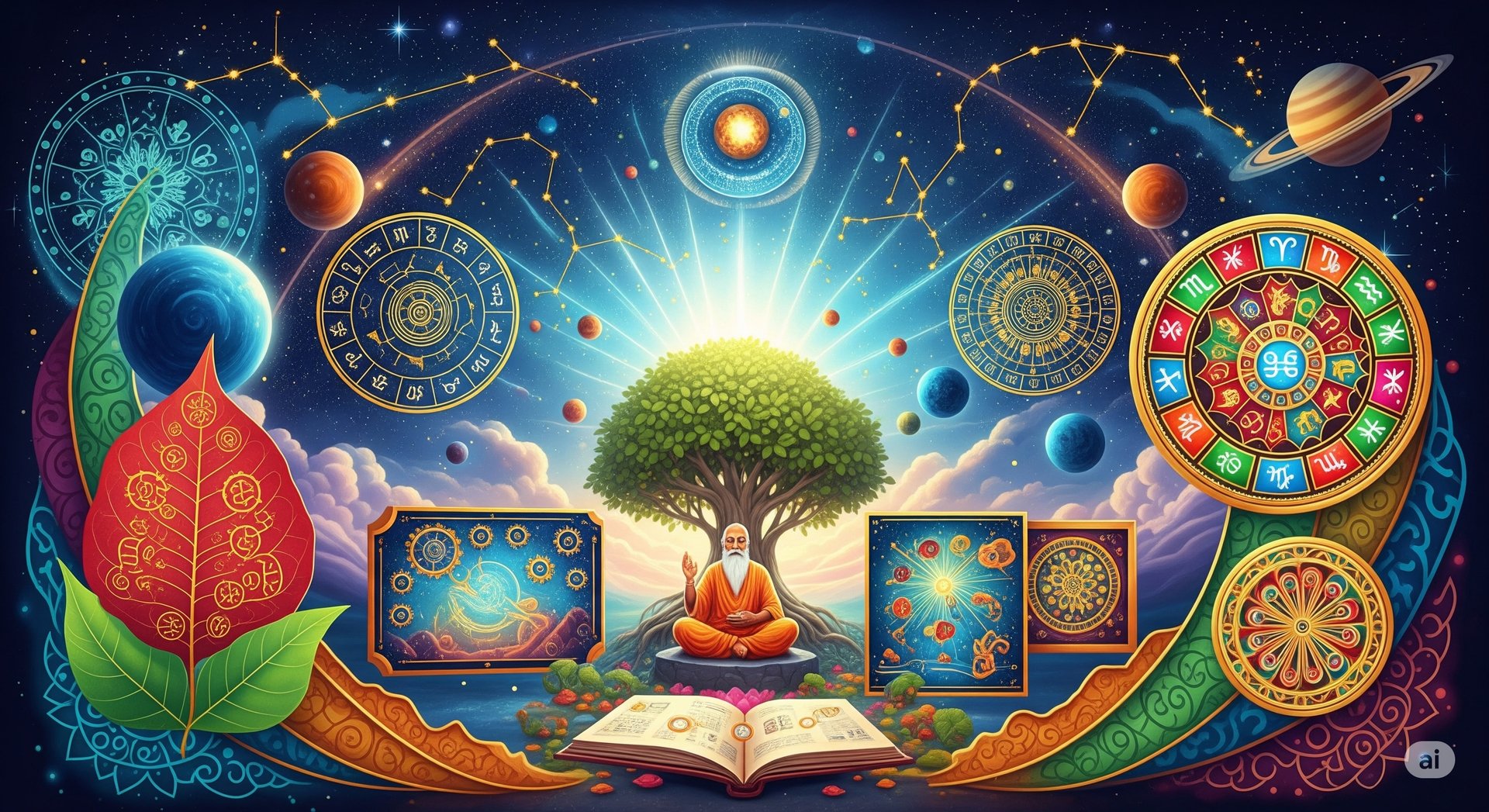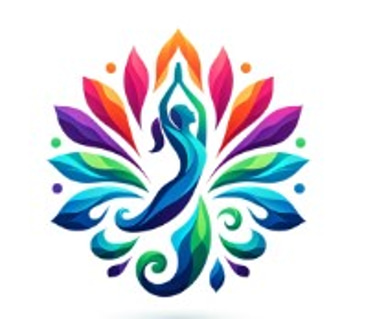
ඔබේ ඉරණම ලියන්නට දෛවයට ඉඩ නොදී, ඔබේ ඉරණමේ අයිතිකරු ඔබ වන්න.
එය කරන ආකාරය ඉගෙන ගන්න
අප ගැන විශේෂිත තොරතුරු
ජ්යොතිෂය යනු වෙනස් කළ නොහැකි දෛවයක් හෝ නියත ඉරණමක් සටහන් කළ දෙයක් ලෙස නොව, ඔබගේ ජීවන ගමන තේරුම් ගැනීමට, අභියෝග හඳුනා ගැනීමට සහ තමන්ගේ ශක්තීන් උපරිමයෙන් භාවිතා කිරීමට මග පෙන්වන ප්රබල මෙවලමක් ලෙස ඔබට හඳුන්වා දීම අපගේ ඒකායන අරමුණයි.
මෙම වෙබ් අඩවිය නිර්මාණය කර ඇත්තේ අනාවැකි මත යැපෙනවා වෙනුවට, මෙම ජ්යොතිෂ මෙවලම ඔබගේ දියුණුව සඳහා ප්රායෝගිකව සහ විචාරශීලීව යොදා ගන්නා ආකාරය ඔබට ඉගැන්වීමටයි.
එමෙන්ම, ජ්යොතිෂයේ නිර්දේශිත ප්රතිකර්ම සහ ඒවායේ සැබෑ ක්රියාකාරීත්වය කුමක්ද යන්න පිළිබඳව විවෘතව සාකච්ඡා කර, මිත්යාවෙන් ඔබ්බට ගිය යථාර්ථවාදී දැක්මක් ලබා දීමට අපි කැපවී සිටිමු.
ජ්යොතිෂය වැනි සාම්ප්රදායික විෂයකට බටහිර හෝ අසාම්ප්රදායික සංගීතයක් යොදාගන්නේ ඇයි?
මෙය බොහෝ දෙනෙකුට ඇතිවිය හැකි සාධාරණ ප්රශ්නයකි. අපගේ පිළිතුර, අප ජ්යොතිෂය දෙස බලන ආකාරය තුළම රැඳී තිබේ.
අපගේ ප්රවේශය වන්නේ ජ්යොතිෂය, පැරණි සම්ප්රදායකට පමණක් සීමා වූ, අතීතයට අයත් දෙයක් ලෙස සැලකීම නොවේ. ඒ වෙනුවට, අපි එය දකින්නේ වර්තමාන ලෝකයේ ජීවත්වන ඔබට, ඔබගේ ජීවිතයේ අභියෝග තේරුම් ගැනීමට සහ ජය ගැනීමට උපකාරී වන ප්රායෝගික, ජීවමාන මෙවලමක් ලෙසයි.
මෙම නවීන සහ වෙනස් දැක්ම සංකේතවත් කිරීමට, අපි දැනුවත්වම සමහර අවස්ථාවලදී සාම්ප්රදායික නොවන සංගීත ශෛලීන් භාවිතා කරමු. එය, "අපි ජ්යොතිෂය භාවිතා කරන්නේද සාම්ප්රදායික රාමුවෙන් මිදී" යන පණිවිඩය ඔබට ලබා දීමටයි.
නමුත්, අපට දැඩි නීති නැත.
අපගේ එකම නීතිය වන්නේ, ඔබට ඉගැන්වීමට නියමිත සිද්ධාන්තයට හෝ සිද්ධි අධ්යයනයට වඩාත්ම ගැලපෙන, සහ මතක තබාගැනීමට වඩාත්ම උපකාරී වන සංගීතය තෝරා ගැනීමයි. සමහර අවස්ථාවලදී එය ඉතා සුපුරුදු, සාම්ප්රදායික සංගීත ආරයක් විය හැකිය. තවත් විටෙක එය නවීන ආරයක් විය හැකිය.
අවසාන වශයෙන්, අපගේ අරමුණ සංගීත ශෛලියකට කොටු වීම නොව, කුමන හෝ සංගීත ශෛලියක් භාවිතා කර, ඔබට දැනුම වඩාත් ඵලදායී ලෙස ලබා දීමයි.
අපගේ ඉගැන්වීමේ සුවිශේෂී ක්රමවේදය
සාම්ප්රදායික ක්රමයට සංකීර්ණ න්යායන් සහ විෂය කරුණු ඉගෙන ගත්තද, ටික කලකින් ඒවා අපගේ මතකයෙන් ගිලිහී යාම සාමාන්ය දෙයකි. මෙම අභියෝගය ජය ගැනීමට, අපි ඔබට දැනුම ලබා දෙන්නේ ඔබට කිසිදා අමතක නොවන, එකිනෙකට සම්බන්ධ වූ ප්රබල ක්රමවේද දෙකක් හරහායි.
පළමු ක්රමවේදය: ගීතය තුළින් දැනුම (Learning Through Music)
අපගේ පළමු සහ මූලිකම ඉගැන්වීමේ උපක්රමය වන්නේ සංගීතයයි. අපි, තේරුම් ගැනීමට අපහසු ගැඹුරු න්යායන් සහ සිද්ධාන්ත, ඔබට පහසුවෙන් මතක තබාගත හැකි සරල, ආකර්ෂණීය ගීත බවට පත් කරමු.
මෙය හුදෙක් විනෝදය සඳහා පමණක් නොවේ; එය ඔබගේ මතකය ශක්තිමත් කරන විද්යාත්මකව ඔප්පු කරන ලද ක්රමයකි.
එය ක්රියාත්මක වන්නේ කෙසේද? ගීතයක ඇති තාලය, රිද්මය සහ වචන රටාව, වියළි තොරතුරුවලට ජීවයක් සහ ව්යුහයක් ලබා දෙයි. එය ඔබගේ මොළයේ හැඟීම්බර කොටස් සමඟ සම්බන්ධ වී, මතකය වඩාත් තදින් කාවද්දයි. එම නිසා, ඔබ වරක් ඉගෙන ගත් න්යාය අමතක වූවත්, ඊට අදාළ ගීතය ඇසෙන විට හෝ මතක් වන විට, ඒ හා බැඳුණු සියලු දැනුම ඉබේම ඔබේ මතකයට නැවත පැමිණේ. ගීතය යනු දැනුම අගුළු හරින යතුරක් ලෙස මෙහිදී ක්රියා කරයි.
දෙවන ක්රමවේදය: සිද්ධි අධ්යයන තුළින් ප්රායෝගිකත්වය (Practicality Through Case Studies)
ගීතයකින් ඉගෙන ගන්නා න්යාය, සැබෑ ජීවිතයේදී ක්රියාත්මක වන්නේ කෙසේදැයි පෙන්වීමට අපි අපගේ දෙවන ක්රමවේදය භාවිතා කරමු.
වියුක්ත න්යායකට වඩා සැබෑ කතන්දරයක් මිනිසුන්ගේ හදවතට සමීප වන බව අපි දනිමු. කතන්දරයක් මගින් දැනුම ලබා දෙනවා පමණක් නොව, එය අපගේ මතකයේ වඩාත් ගැඹුරින් කාවදින අතර, එම දැනුම අපගේම ජීවිතයට සම්බන්ධ කර ගැනීමටද උපකාරී වේ.
එම නිසා, අපගේ සෑම ගීතයක්ම, ඊට අදාළ සැබෑ ජීවිතයේ අත්දැකීමක් පදනම් කරගත් "සිද්ධි අධ්යයනයක්" (Case Study) සමඟ සම්බන්ධ කර ඇත. මෙමගින්, ගීතයෙන් ඉගෙන ගත් න්යාය, ප්රායෝගිකව ක්රියාත්මක වන ආකාරය ඔබට පැහැදිලිව දැකගත හැකිය.
වැදගත්: ඔබගේ සහ මෙහි සඳහන් පුද්ගලයන්ගේ පෞද්ගලිකත්වය ආරක්ෂා කිරීම අපගේ ප්රමුඛතාවයයි. එම නිසා, මෙම සියලුම සිද්ධි අධ්යයනවල ඇති නම්, ස්ථාන සහ හඳුනාගත හැකි සියලු තොරතුරු සම්පූර්ණයෙන්ම වෙනස් කර, පුද්ගලයන්ගේ අනන්යතාවය සුරැකෙන පරිදි සංස්කරණය කර ඇත.
අපි විශ්වාස කරන්න!
විශ්වාසය
